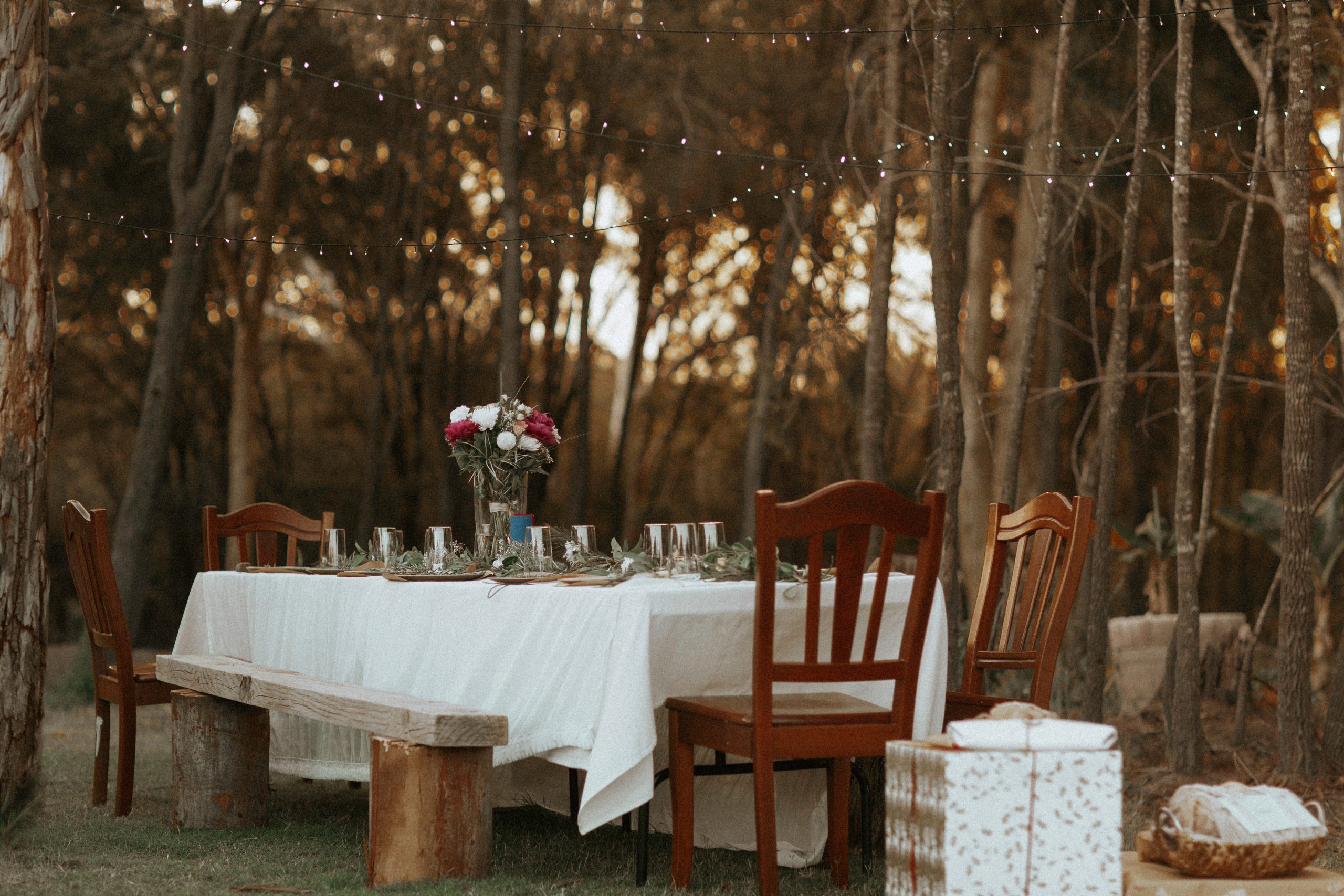In times when millions of people want to find their natural pagan spirituality, self and culture, but lack the knowledge, structure and words to go from studying to practicing, the Hamingja Foundation publishes this very hands-on guide to how to plan, host and lead the toasting ritual called Symbel or Symposium.
In Indo-European languages we see the prefix sym-, meaning ’together’, ’one’, ’with’ etc. So what the Germanic peoples called symbel, the Greeks & Romans called symposium & the earliest Indo-European peoples called Sṃlo means a ritual celebration where you ’sit together’ and make toasts, boasts, & oaths together, strengthening the bonds of the community and to the gods, ancestors and spirits invited to take place among us.
This festivity of sitting together in a holy setting, passing a drinking vessel, ritual drinking, toasting, boasting and oathing, speeches, songs, poems, gift-giving etc consists of several rounds, or ’fulls’, dedicated to different purposes. Often the number of rounds was three, but it was also common that the symbel/symposium went on for lots and lots of rounds.
In a Germanic (including an Anglo-Saxon) context the three official and most important rounds were the Minni, the Bragarfull and an open round. Minni means memory or remembrance, where we think of and invite the divine kindreds to drink with us. The Bragarfull – related to both Bragi and bragging – could mean toasts, boasts and oaths – of something you’re proud of, of your own past deeds, of the deeds of past heroes or your own ancestors, or oaths and promises to accomplish great deeds that benefit the community. Something you plan to do or something someone else has done that you want to highlight. A way of shaping our own wyrd.
In the open full or toast one could basically say whatever was on one’s mind and in one’s heart. Showing gratitude for something, singing a song, saying a prayer to a patron deity, telling a story, reading a poem, asking for something from the gods or even from another participant. Or simply just give a toast to the context and company, something you’re happy and thankful for. As long as it’s solemn, on topic and positive, anything goes.
This ceremony is about honoring the community and the divine kindreds. But it’s also about being heard – by the community and the divine kindreds. The so called Symbelgifa – the one who gives/throws and moderates the party (in ancient Greece called symposiarch, and in Rome sometimes Rex Bibendi; ’the king of drinking’) – is the leader (and sponsor) of the ceremony, where each participant gets his/her moment with the divine kindreds in every round.
The so called Ealu Bora – ’ale bearer’, this should preferably be a woman having this role – who represents the Well itself, traditionally initiates the ceremony by saying a prayer, making the first toast and pouring a libation,
Each participant is then sequentially given the word, speaks and then makes a toast, drinks and finishes by pouring a libation.
General guidelines & info before the practical guidelines
🙏🏻 When the ’sacred space’ has been established and consecrated, with the divine kindreds present, you should act and speak in a respectful and constructive way.
🙏🏻 The beverage for your toasts and libations is supposed to be alcoholic – mead, beer, wine, cider or some kind of sacred drink. That’s customary. If you absolutely don’t want to use alcohol, or if you’re underage, then use for example a mix of milk and honey, or like a grape/apple juice.
🙏🏻 It’s considered bad form to leave during the first three rounds. So if you choose to participate in a symbel you set aside at least as much time as it takes for the first 3 rounds. After that, when there’s talks, songs, gift giving etc it’s ok to leave, even though it’s better to stay, since otherwise you miss the blessings etc.
🙏🏻 When someone else talks we don’t interrupt or make noise.
🙏🏻 When it’s your turn in the fulls, it’s your turn with the divine. You don’t have to say anything out loud if you don’t want to – you can say it in your heart. On the other hand, it gets more intimate and interesting if you share with each other.
🙏🏻 There is no time limit for a toast, story, oath, or boast. Anything can be said as long as it comes from the heart. It can be as simple as a hail to a God, Goddesses, or ancestor. It can also be as lengthy as deemed necessary by the participant.
🙏🏻When you’re finished talking you’ll circle the glass over the fire, take a sip, raise the glass in a toast, drink and then pour some of it in the bowl that you’ve placed in front of you. That way your words go straight into the Well, impacting the wyrd of yourself and all present.
🙏🏻 The word then goes to the next participant.
What you need in a Symbel
– Candle / fire
– Statuette/idols/symbols of the gods and spirits you want to invite
– Beverage
– Bowl of clean water, preferably with sea salt in
– Bowl for libations
– Prepare what you want to say in the various rounds or ’fulls’
– A bell or some other instrument (if you’re the leader)
– Potentially also incense (if you’re the leader)
– A happy and calm mind. If you’re stressed and angry – don’t participate!
The procedure
Moment of contemplation and unwinding
The ceremony starts with that you try to let go of all your musts and chores and everyday thoughts, and just empty your mind.
Also make sure that you’ve turned off your phone, so you and the rest of us won’t get disturbed. Let’s relax a few moments, and then I’ll ring a bell for the summoning.
Summoning (bell, horn, instrument)
This sound/signal means that you leave behind your everyday life and worldly problems and thoughts for the moment, and that you now enter the holy and focus your minds and actions on this very moment, being in the sacred space with the divine kindreds. It means frith, focus and a heart in devotion. Be present and mindful.
’Call to silence’
The leader encourages the participants to Favete linguis! (as the Romans said) – to use good language, refrain from bad language or keep holy silence.
Moment of silence and meditation
Another short moment in peace and meditation upon the holy.
Call to worship
The symbelgifa/symposiarch has prepared a short prayer or call to worship, to remind the participants why they’re here – to celebrate together and appease the divine kindreds.
That by worshipping at a common hearth we are made one family, one people.
Bring out the idols/symbols/statuettes & unveil them one by one
The gods and/or spirits you want present in and to be the patrons of the ceremony are brought out, covered in little veils, cloths etc.
One by one you unveil them, while saying a prayer to each of them.
Finish by saying
By worshipping at a common hearth
we are made one family, one people.
May this ritual be performed rightly.
When the rituals are performed rightly
All of the relationships in society are well.
Purification
Next comes an act of purification. Remember that all Indo-European peoples were obsessed by purification. Call upon holy water, holy rivers etc, and ask the participants to wash their hands and also put some water on their forehead and mouth. Doing these three things purifies one’s actions, thoughts and words. Burning some incense is also a good idea.
Declare the place sacred & announce frith
Announce that the space has now been sanctified and that you can now begin your rites.
Also, it’s important to declare frith among people and the divine kindreds. This is not a time for discussions and debates. Our ancestors did this with an oath ring, to show that you mean business.
Light the candle
Now it’s time to light the sacred fire, the eternal flame. The symbelgifa lights his first, says a prayer and then tells the others to light their candles too.
Ring the bell
Now he rings the bell (or the instrument) three times, one for each divine kindred, to call upon them, to ask them to bless this rite with their presence. He also asks them to accept your hospitality.
The mother/hearth goddess
Bring out and unveil the mother/hearth goddess and give praise to her
Forespeech
Now that you’ve sanctified the space and purified yourselves you take a moment in silence. Take a look at the fire and reflect and meditate on the divine around you and within yourself. Feel the presence of the divine.
The symbelgifa can then give a little welcome and informative forespeech, so the participants feel comfortable. He also informs about the various rounds.
Finish this part with
Those who speak worthless words over the cup and horn—such as false boasts, or oaths that will never be fulfilled—risk shaping their wyrd in ways that they cannot escape without harm or humiliation.
Skald/singer/poet
Before proceeding it’s nice to have a little performance here – a story, a song or a poem.
Ealu bora:
The word now goes to the Ealu Bora. She fills up her glass, circles it over the fire, takes a sip and pours the first libation in order to make the sacred connection to the All. It is her duty to water the World tree, so that the eternal flow is continued and so that past, present & future is present here & now.
She says the words
I am Ealu Bora. It is my duty to create the sacred connection to Xartus and to water the World tree.
It is my duty to make sure that the eternal flow continues and that past, present & future is present here & now.
Ealu bora then gives the word back to Symposiarch/Symbelgifa.
Symbelgifa instructs
all participants to fill up their glasses, circle the drink over the fire clockwise and bless it.
Minni
Ritual toast to the gods, spirits, ancestors, heroes. Do the Minni in three rounds:
First round: Spirits of the place – it is in their habitat you are
Second round: Gods & goddesses, the participants may salute whichever they want
Third round: Ancestors
This round offered to our Ancestors in general, or to a specific Ancestor we want to remember.
Skald/scop:
After the Minni it’s nice to once again have a little performance. Song, poetry etc.
Bragarfull
Toast and drink after a praise, brag, an oath, something you’re proud of, highlighting something you’ve done or will do, or celebrating someone else who’s done something great and honorable.
Pour a libation after you’ve drunk.
Skald/ Songs / storytelling
Once again a little performance. Song, poetry etc.
Open fulls
Give a toast to whomever or whatever you like. Something you’ve always wanted to say, something you’re thankful for, ask for something from gudar or participants, ask for help etc.
Pour a little libation after you’ve drunk!
Guest speech
Not obligatory, but this is a perfect moment for an inspiring talk.
Talking, perhaps bring up a specific subject to discuss
Her’s room for reflections, discussing something the participants have thought about or something they’ve brought up during the rounds, something they wonder about or need help with. Or just talking in general about what they’ve gone through.
The symbelgifa now asks if there’s any more spiritual work that needs to be done.
Gift giving
It was customary to give gifts during the symbels and symposiums. People did this to show generosity, create strong bonds etc. Remember that Indo-European spirituality is based on the exchange and gift-giving cycle between all kindreds. This is not obligatory, but at least the leader should show generosity.
Closure & blessing
Burn an oblation (incense, ghee, barley, rice) to appease the gods before you go.
The symbelgifa ends the ceremony with some closing words and a blessing. He tells them to hold their palms over the candle so they feel the blessing of the divine light, while he says a blessing and a prayer. E.g. including
It is right for there to be an end to things.
We return blessed by the Holy Ones,
Confident that we will attain our goal.
Everything is in its proper place.
Walk on the path of the Mighty Ones,
Under their protection, with their blessing.
Extinguish the fire
And tell the others to do the same.
Ring the bell/instrument
Adoratio gesture 👌🏻



